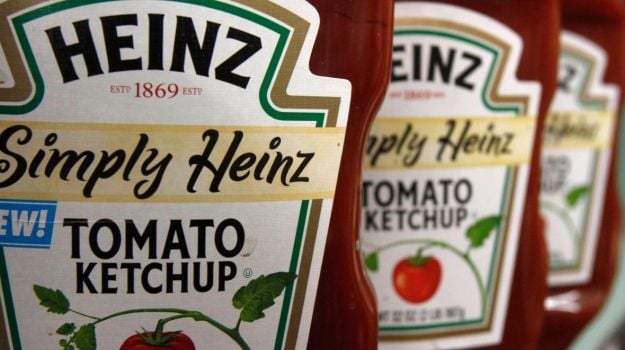A promotional bottle of Heinz ketchup sent a consumer to a porn site via a QR code printed on its label. Photograph: Toby Talbot/AP.Ketchup buyer mistakenly exposed to porn after Heinz allows a competition domain to lapse, allowing adult entertainment firm to buy it.Heinz has apologised to a customer after a QR code on one of its tomato ketchup bottles linked to a porn site.
After using a smartphone to scan the code, which was meant to provide information about a promotional campaign that offered personalised ketchup bottle labels, Daniel Korell was sent to a German adult site rather than a Heinz-run page.
"We really regret the incident," a Heinz representative said on Facebook, offering to send Korell a personalised ketchup bottle as compensation.
The QR code linked to a URL used for the "Spread the word with Heinz" competition between 2012 and 2014. Heinz allowed the domain name "sagsmithheinz.de" to lapse after the competition closed, which was subsequently purchased by a purveyor of german adult entertainment.
"The bottle may be a remnant, but it is certainly still present in many households," Korell told Heinz. "It is incomprehensible that you cannot secure the domain for at least one or two years. A .com domain really does not cost the world."
Heinz said that it would rectify future issues revolving around temporary brand extensions online. The pornography site also offered Kroll a free subscription to its service.
The condiment company is not the first to forget to renew a domain name with embarrassing consequences. Sony allowed its online entertainment domain SOE.com to expire, taking down the service last year.
After the FBI's seizure of the Megaupload.com domain from Kim Dotcom, it began serving pornography, drugs and malware after it expired while still being controlled by the US government.
All cases show that brand control on the internet is very important and that a web domain is for life, not just for Christmas, or a short-term competition that is likely to come back to haunt you.









